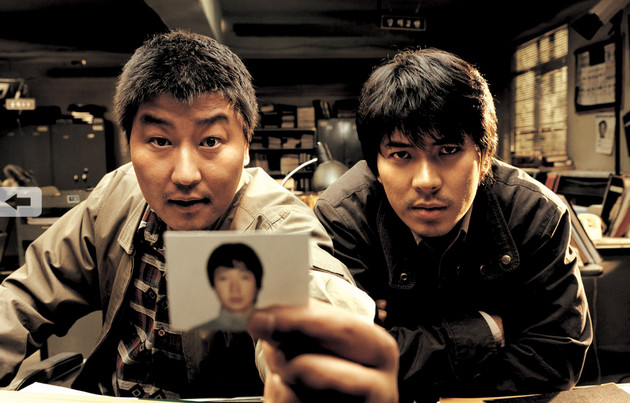
This particular genre is the one that propelled Korean cinema to its current international status, since the country’s filmmakers seem to have an uncanny ability to produce masterpieces in the category. These films excel in terms of script, direction, acting and overall production values, resulting in highly entertaining outcomes that also have great depth and artistic value, in contrast to the general rule of the genre.
Furthermore, the genre was the one that instigated Hollywood to transfer some of its most distinct filmmakers to shoot films in the US, as was the case with Park Chan-wook, Kim Ji-woon and Bong Joon-ho.
Korea seems to produce similar pictures constantly, a tendency that resulted in hundreds of entries in the category. The following are the best among them.
20. Secret Reunion (Jang Hoon, 2010)
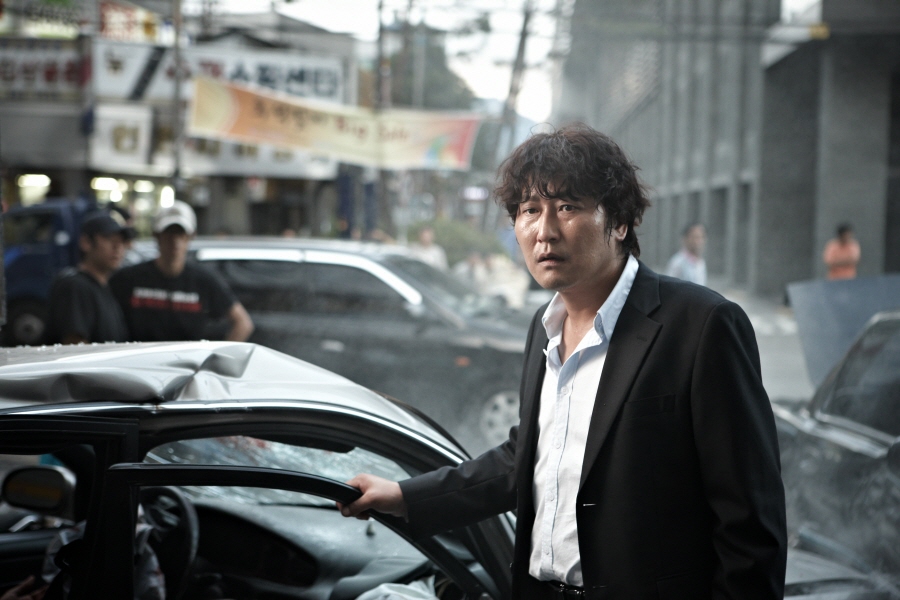
Ji-won and Han-gyoo are special agents for North and South Korea, respectively. The two of them exchange glances during a North Korean assassination attempt of Kim Jong-il’s second cousin, which fails due to Tae-soon’s betrayal. Shortly after, Han-gyoo is discharged for mishandling the case and Ji-won takes the blame for Tae-soon, subsequently going into hiding from his commander named Shadow. Six years later, Ji-won and Han-gyoo meet again.
Jang Hoon, a former assistant of Kim Ki-duk, directs a thriller that benefits the most from its fast pace and the impressive action scenes, including car chases, lots of shootouts, blood, and some artfully choreographed brawls.
Song Kang-ho is once more magnificent as Han-gyoo, in a role that requires him to appear as a hero, an everyday man, and a clown, a difficult task that he executes with distinctive ease. Lastly, his chemistry with Kang Do-won, who plays Ji-won, is one of the film’s greatest assets, although the difference in their acting abilities is obvious.
19. The Man from Nowhere (Lee Jeong-beom, 2010)
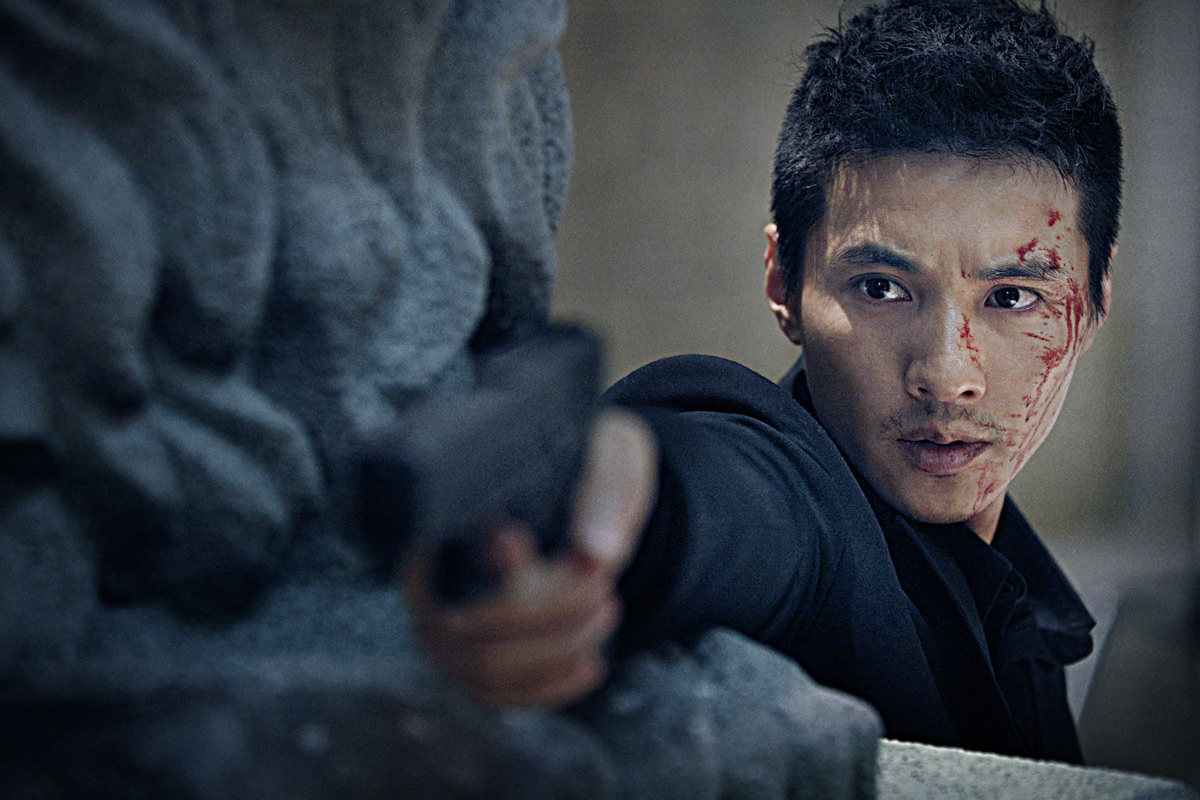
This is probably the most action packed film on this list, with the direction and script having many similarities with older John Woo films and the protagonist with Chow Yun Fat, accordingly.
Cha Tae-sik operates a small pawnshop while living a quiet and lonely life, having as his sole company a little girl named So-mae. Her mother, who is a drug addict, steals drugs from a dealer and hands them over to Tae-sik without him knowing. When the dealer’s gang discovers the perpetrator, they kidnap her and her daughter and turn against Tae-sik.
Lee Jeong-beom directs a film that chiefly focuses on action, which is thunderous from a point on, despite the fact that the beginning is a bit slow. His prowess in directing action scenes is evident all throughout the film, with tension and agony emitting from every moment the action takes place and the frequency of them hiding the mediocre script.
Won Bin is impressive as the silent vigilante Cha Tae-sik, although the one who steals the show is 10-year-old Kim Sae-ron, who plays So-mae like a true professional.
18. Sympathy for Mr. Vengeance (Park Chan-wook, 2002)
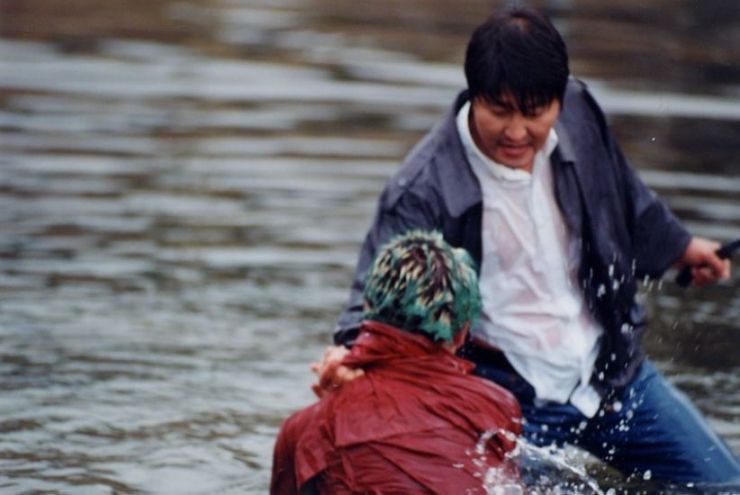
The first part of “The Revenge Trilogy” revolves around Ryu, a deaf-mute worker in a factory desperate to arrange a kidney transplant for his dying sister.
His situation takes a turn for the worse when he is laid off from his job and a black market organ dealer tricks him into giving him all his severance money and his own kidney. Seeing Ryu in that situation, his girlfriend Yeong-mi suggests kidnapping the daughter of his boss, an executive named Dong-jin.
Park Chan-wook presented the extremes an individual can reach when they find themselves in desperate situations. However, he refrained from graphically depicting the violence, ensuing in probably the most “shy” film of the trilogy. His distinct irony is once more evident in a number of scenes as is his black humor, which would later become one of his most distinct characteristics.
The cinematography is once more spectacular, particularly in the fight scenes, and Shin Ha-kyun as Ryu, Bae Doona as Cha Yeong-mi and Song Kang-ho as Ryu’s boss are great in their respective parts.
17. Confession of Murder (Jung Byung-gil, 2012)
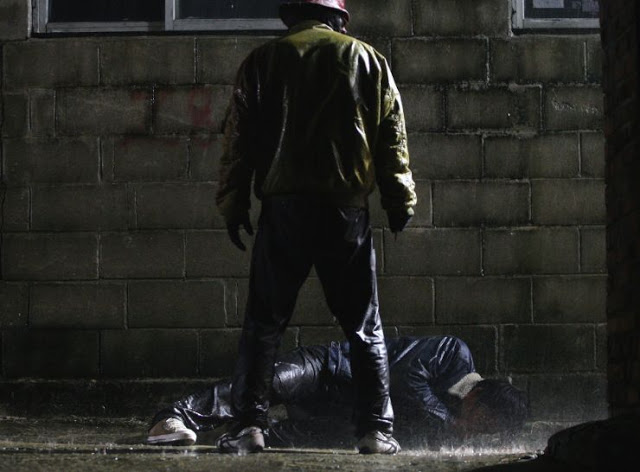
In another Korean film that has the statute of limitations as his base, serial killer Lee Doo-seok publishes a book titled “I’m a Killer”, which describes the crimes he committed, after the aforementioned law has rendered his acts unpunishable. The book becomes a bestseller and the gorgeous Doo-seok becomes very popular among teenage girls.
Detective Choi Hyung-goo, whose failure to capture the serial killer 15 years ago has led him to alcoholism, is now set to finally capture him.
Despite the uncommon script, Jung Byung-gil shot a film that stands apart due to some social remarks about the pop culture and the media’s obsession with ratings. The fact that Doo-seok becomes popular due to his general appearance, despite murdering a number of women, is a clear mockery of the aforementioned tendencies.
Jung Jae-young as Choi Hyung-goo and Park Si-hoo as Lee Doo-seok portray their rivalry elaborately, with the latter’s depiction of a self-conscious celebrity being one of the film’s biggest assets.
16. J.S.A.: Joint Security Area (Park Chan-wook, 2000)
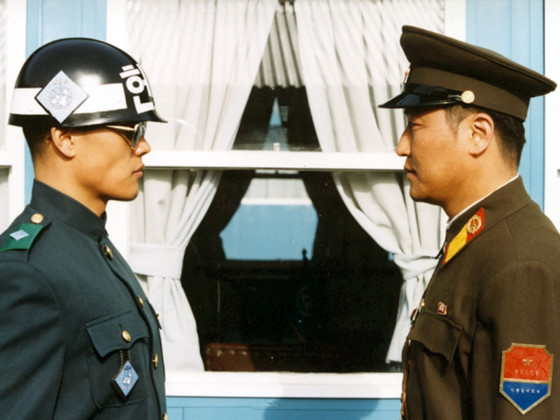
“JSA” is one of the films that inaugurated the new era in Korean cinema. In style, it was one of the first in the genre; in its cast, it established the careers of Park Chan-wook, Song Kang-ho and Lee Byung-hun; and in technique, it was the first in the country shot with a Super 35 camera, which is commonly used in Hollywood blockbusters.
The script is based on the novel “DMZ” by Park Sang-yeon and takes place in the demilitarized zone, on the border between the two Koreas.
Two North Korean soldiers are killed in a guardhouse in the DMZ and moments later, a South Korean sergeant named Lee Soo-hyeok attempts to cross the bridge in the middle of the zone back to his country. The North Koreans open fire against him, but his compatriots manage to save him. However, the cease-fire is now hanging by a thread.
Two days later, Major Sophie E. Jean of the Swiss Army arrives at the area to investigate the case for NNSC. The two sides have opposite theories about the facts, supported by Lee Soo-hyeok and Sergeant Oh Kyung-pil, respectively. The case is further complicated by the fact that Major Jean is the daughter of an expatriated Korean.
Park Chan-wook used flashbacks splendidly to slowly reveal exactly what happened, keeping the tension all through the film. He presents the general atmosphere and the depiction of the conditions in one of the most unstable areas in the world with realism, but without failing to entertain in equal proportion, particularly through some comedic moments, as the scene where the two protagonists spit at each other across the line that separates the two countries.
The minor flaws of the film lie with the moments where the protagonists speak almost inconceivable English, and with the performances by the western actors.
Song Kang-ho as Oh Kyung-pil and Lee Byung-hun as Lee Soo-hyeok are both magnificent, to the point where the spectator cannot pick a side among them. The two of them, along with the direction and the cinematography, are the film’s biggest assets.
15. A Hard Day (Kim Seong-hun, 2014)
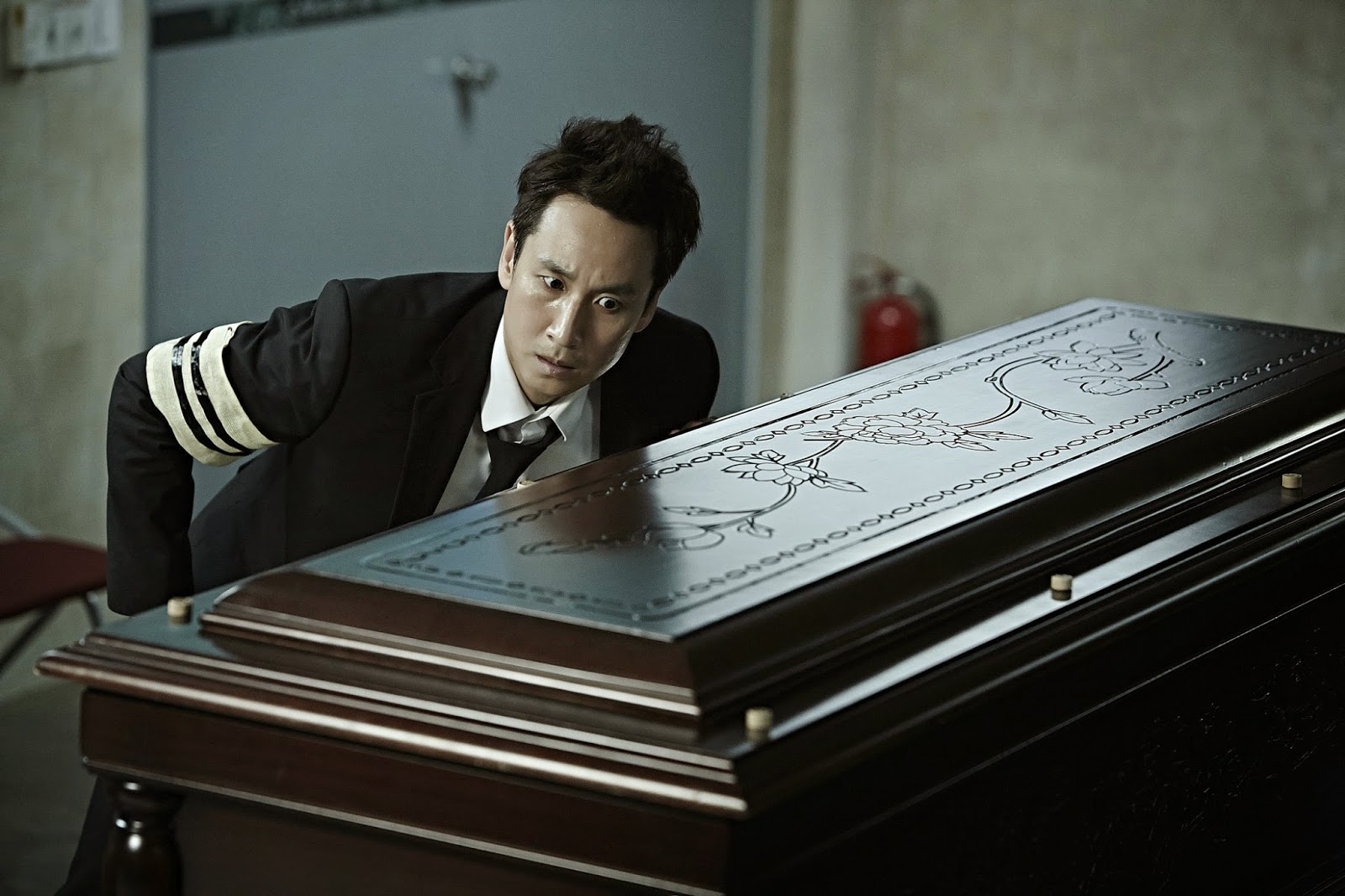
Detective Ko Gun-su is a troubled homicide detective. His mother recently died and the Internal Affairs are investigating his department over bribery charges. Furthermore, as he is driving to his mother’s funeral, he runs over a man and because he cannot take any more drama, he puts the body in his trunk and continues his course.
Unfortunately, he is stopped by traffic policemen, an encounter that leads to pepper spraying, tasing and eventually slapping. His worst idea comes a bit later, when he decides to hide the body in his mother’s casket.
Kim Seong-hun directs a film that constantly lingers between dark comedy and thriller, succeeding in the portrayal of both and thus creating a highly entertaining picture.
The general pace is rapid and is shot in many close-ups, a technique Lee Sun-kyun, who plays Gun-su, exploits to the fullest in order to present a character who seems resourceful, but ends up failing every time. Cho Jin-woong, who plays his “enemy”, is also very convincing, emitting cruelness despite his exterior that suggests otherwise.
The various fights between the two are as magnificent as they are agonizing, in a film that mainly excels because it does not take itself very seriously.